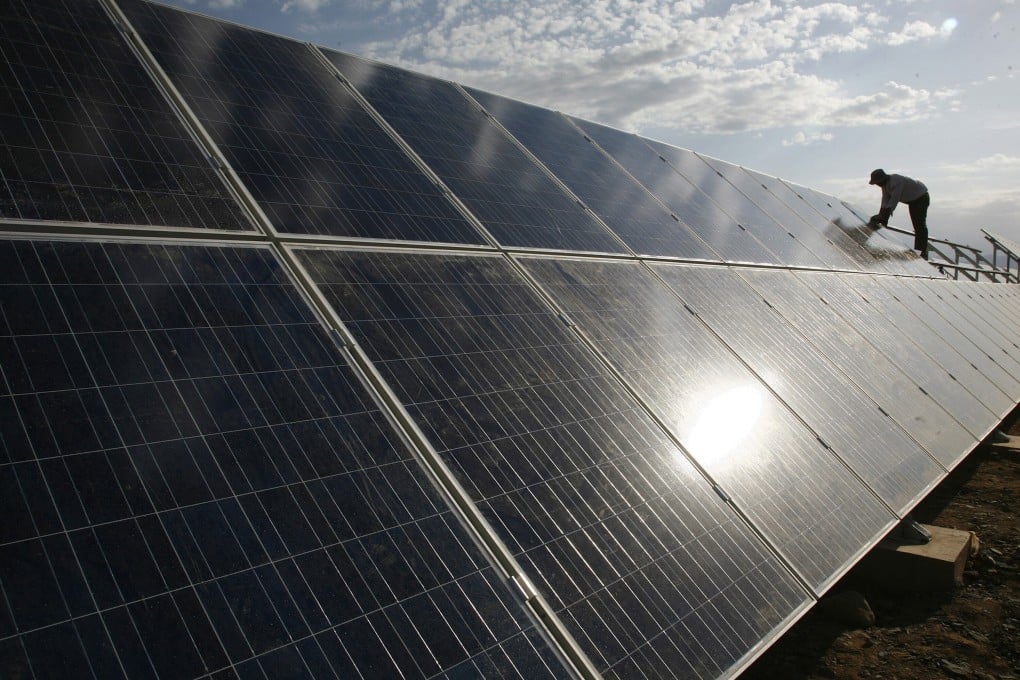Advertisement
Biden’s ban on Xinjiang-produced solar products fuels stock rally in repeat of cotton boycott episode
- Solar-panel parts suppliers are surprising winners in stock markets as Biden’s move enriches company valuations
- China unveils a programme this week to boost solar-panel installations that could add US$154 billion to the market size: Dongguan Securities
Reading Time:2 minutes
Why you can trust SCMP
1

Zhang Shidongin Shanghai
The US government’s decision to block the imports of solar-panel materials produced in Xinjiang has enriched the valuation of affected companies in the supply chain, just like the episode involving cotton harvested in China’s northwestern autonomous region.
Solar-related parts suppliers from Shanghai-listed LONGi Green Energy Technology to Hong Kong-traded Xinyi Solar have been rallying since the news about the ban started filtering in this week. Even the unlikeliest stock Xinte Energy, a producer of polysilicon based in Xinjiang itself, is riding the upturn.
LONGi, the nation’s biggest maker of polysilicon, rose 2.4 per cent to 86.16 yuan on the Shanghai exchange, lifting it to within 2 per cent of its all-time high set in January. Xinyi Solar, which became Hang Seng Index constituent this month, climbed 1.4 per cent to near an almost four-month high of HK$16.42.
Advertisement
Xinte Energy surged 4.9 per cent to HK$15.50, extending a 7.3 per cent jump on Thursday, after the US imposed a ban on imports from Hoshine Silicon Industry on forced labour allegations. It also restricted exports to Hoshine, three other companies and the paramilitary Xinjiang Production and Construction Corps.
China’s dominant status in the global chain of solar products and a small proportion of shipments to the US will help the industry withstand any US sanctions from President Joe Biden’s administration, according to analysts at Citigroup and Dongguan Securities.
Advertisement
The Asian nation accounts for more than 70 per cent of the global polysilicon output, a major raw material for solar products, while the top 10 exporting countries for solar modules are all based in Europe and Asia, they said in separate reports. American procurements can only absorb between 10 and 15 per cent of the output, they added.
Advertisement
Select Voice
Choose your listening speed
Get through articles 2x faster
1.25x
250 WPM
Slow
Average
Fast
1.25x